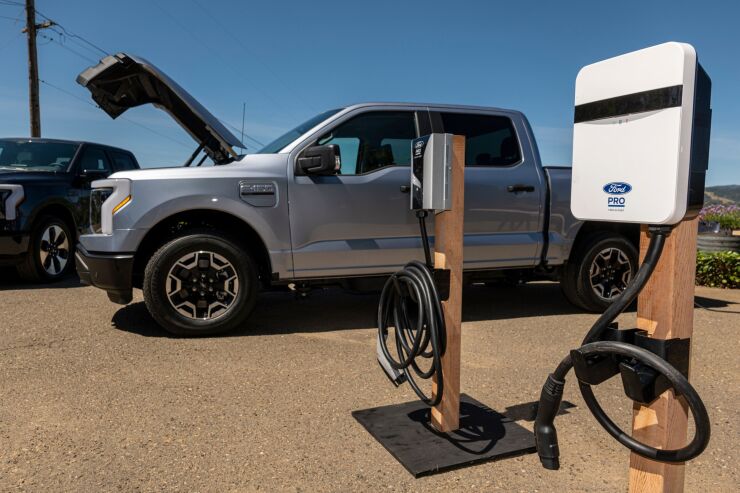The Internal Revenue Service and the Treasury Department released guidance Friday on tax incentives for installing electric vehicle charging stations and other alternative fuel refueling stations under the Inflation Reduction Act and where they can be located.
The information can help households, businesses and other organizations considering such investments find out whether they're eligible for a tax credit of up to 30% for installing EV charging stations.
The guidance comes at a time when the cold winter weather in many parts of the country this past week has led to long lines at some EV charging stations as low temperatures can reduce the batteries' range.
The Department of Energy also released a

The Section 30C Alternative Fuel Vehicle Refueling Property Credit works in tandem with the Inflation Reduction Act's Clean Vehicle Credit and Advanced Manufacturing Production Credit to spur adoption of electric vehicles and lower EV costs. The incentive provides a tax credit of up to 30% of the cost of qualified alternative fuel vehicle refueling property placed in service by the taxpayer.
The credit can be claimed by people for home EV charging and other refueling equipment and by businesses. The credit is limited to $100,000 per business property and $1,000 for personal property. It can be claimed through a so-called "elective pay" mechanism (often called direct pay), so entities such as governments and tax-exempt organizations making investments in EV infrastructure can benefit.
While expanding the 30C credit, the IRA added a requirement that qualified property needs to be placed in service in an eligible census tract such as a low-income community, but not urban communities. Low-income community census tracts follow the definition used for the New Markets Tax Credit. Non-urban census tracts would be those tracts within which at least 10% of the census blocks are outside of urban areas.
The notice announces the government's intention to propose regulations to define eligible census tracts and includes two appendices that provide the list of eligible census tracts:
"Additional clarity around the law's incentive to build new charging infrastructure in communities that need it most will help drive continued progress in 2024," said Deputy Treasury Secretary Wally Adeyemo in a statement.
Despite the many tax incentives for EVs in the Inflation Reduction Act, demand for electric vehicles has declined recently, and companies like Ford and GM have been pulling back,





